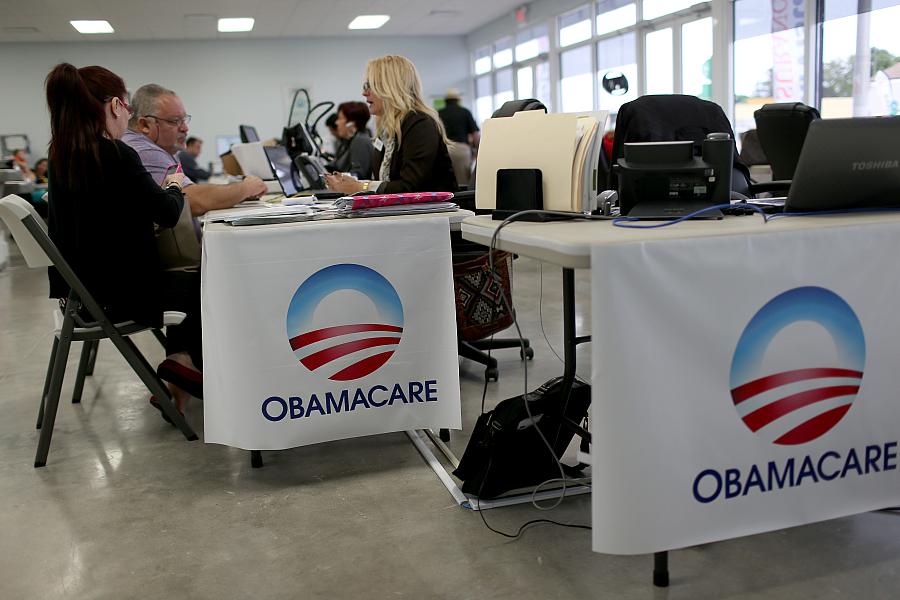Perspective: ACA allows family to return to work and better health

Photo: Joe Raedle/Getty Images
When Elizabeth Martinez hears House Speaker Paul Ryan talk about high-risk pools, she recalls the time her health insurance offered limited physician visits, no physical therapy coverage, and a deductible so high that she couldn’t pay for the medications that keep her multiple sclerosis at bay.
“When I was in the high-risk pool, my health was so much worse,” said Martinez, 39, who lives in Buena Park, Calif. “And, if I had a relapse, it was financially crippling.”
Now, under a Covered California plan that has improved her health, she can once again work as a make-up artist, a job that often requires her to stand all day.
“The fact that I can do physical therapy and get my medicine consistently – that keeps me working,” she said. “Without the Affordable Care Act, I would be screwed.”
The new administration’s promise to repeal the ACA is keeping Martinez up at night with worries about the impact on her health, job and future. Even though she recognizes the health law has flaws, she had hoped for changes that improved Obamacare, rather than repealing it altogether.
Before the ACA
A multiple sclerosis diagnosis 12 years ago was Martinez’s introduction into a faulty health system. Even though the insurance policy she had bought years earlier had only bare-bones benefits, having a pre-existing condition precluded her from changing plans.
When she moved from California to Texas, she was forced to change insurance carriers. Her new plan placed her in a high-risk pool, which carried a high deductible, limited her physician visit and did not cover physical therapy. As a result of those limitations, Martinez said her health suffered. While on that plan, her left leg became so weak she had trouble standing, and her back buckled under the extra burden. The constant pain forced her to give up a full-time job. Unable to afford a MRI to located the source of the pain, she simply took painkillers.
The Affordable Care Act changed everything. Suddenly, Martinez no longer had to forego tests or treatments. It also meant she was finally able to get a MRI, which found a bulging disc causing her leg pain. She enrolled in physical therapy, chiropractic care and massage — treatments that helped her work on her feet again.
“It was a world of difference,” she said. “My life changed a lot.”
For $80 a month, she and her husband both received Blue Shield plans through the exchange plans.
With insurance, her husband stopped using low-cost clinics, where he often waited for weeks to get an appointment. The coverage also means he can stay self-employed as a band booker, which allows him the flexibility to stay home if Martinez has a MS flare-up. And the lower rates allowed the couple to start paying down their crippling medical debt.
Even with recent rate hikes that forced them to switch to an exchange HMO plan, Martinez said she’s grateful her ACA experience has been in California.
“If every state did what Covered California did, I think everyone would love it,” she said.
The election was incredibly personal for Martinez as she pondered the future of the ACA. She hoped a Hillary Clinton victory might iron out problems with the health system, such as soaring medical bills.
When the results came in, she couldn’t hold back tears: “I was sobbing because my life line might be taken away.”
Martinez still has hope that stories like hers could encourage leaders to improve the law rather than repeal it.
“Anyone can be financially bankrupt if we go back to the old system,” she said. “Health should be non-partisan.”
**
Other posts in this series:
Perspective: How Obamacare allowed me to become my real self
Perspective: Obamacare isn't working for middle-class American families like mine
Perspective: Why Obamacare isn't working and must be repealed

